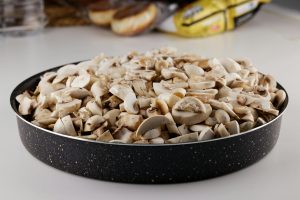Top Tips for stress management in Food And Nutrition
Stress is a common issue that many of us face on a daily basis. With our busy lifestyles and hectic schedules, it’s easy to become overwhelmed and anxious. However, did you know that the food we eat can affect our stress levels? Yes, you read that right. Our diet plays a significant role in managing stress. In this article, we will discuss the top tips for stress management in food and nutrition. These tips are not only backed by scientific research but are also easy to incorporate into your daily routine. So let’s dive in!
The link between food and stress
Before we dive into the tips, it’s essential to understand the connection between food and stress. When we are stressed, our body produces cortisol, also known as the stress hormone. High levels of cortisol can lead to increased food cravings, particularly for foods high in sugar and fat. These foods give us a temporary feeling of comfort and pleasure, which is why they are known as “comfort foods.” However, indulging in these foods can lead to weight gain and other health issues, making stress management even more challenging.
Top tips for stress management in food and nutrition
1. Eat a balanced and nutritious diet
A well-balanced diet is essential for our overall health, including our mental health. Consuming a variety of fruits, vegetables, whole grains, lean protein, and healthy fats provides us with essential vitamins, minerals, and antioxidants that help combat stress. Try to incorporate a variety of colors into your meals, as different colors of fruits and vegetables offer different nutrients. And don’t forget to drink plenty of water to stay hydrated and energized.
2. Limit caffeine and alcohol consumption
We all love our morning coffee or evening glass of wine, but both caffeine and alcohol can significantly impact our stress levels. Caffeine is a stimulant that can increase our heart rate and cortisol levels, making us feel more anxious. On the other hand, while alcohol may seem to relax us temporarily, it can disrupt our sleep patterns, leading to increased stress and anxiety. Try to limit your caffeine intake to one or two cups a day and consume alcohol in moderation.
3. Incorporate stress-busting foods into your diet
Several foods have been linked to reducing stress and anxiety levels. These include foods rich in omega-3 fatty acids like salmon, tuna, and walnuts. These healthy fats are known to have a calming effect on the brain. Other foods that can help reduce stress include dark chocolate, avocados, and green leafy vegetables. Try to include these foods in your meals to promote a sense of well-being.
4. Plan and prepare your meals
Hectic schedules can make it challenging to stick to a healthy diet, leading us to make poor food choices when we’re stressed. By planning and preparing meals ahead of time, we eliminate the need to resort to fast food or unhealthy snacks when we’re short on time. Set aside some time during the weekend to plan and prepare your meals for the week. This will not only save you time and stress during the week but also ensure you’re nourishing your body with wholesome foods.
5. Practice mindful eating
Mindful eating involves being fully present and focused on the act of eating. It encourages us to pay attention to our food, the taste, texture, and smell, and to eat without distractions. When we are stressed, we often turn to mindless eating, consuming food quickly without enjoying or even noticing what we are eating. This can lead to overeating and weight gain. Practicing mindful eating can help us slow down, make healthier food choices, and even reduce stress.
6. Seek professional help if needed
Despite our best efforts, managing stress through diet alone may not always be possible. If you feel that your stress levels are significantly impacting your well-being and quality of life, consider seeking professional help. A registered dietitian can help you create a personalized nutrition plan to manage stress and improve your overall health.
In conclusion
Incorporating these top tips for stress management in food and nutrition into your daily routine can make a significant difference in managing stress levels. Remember to eat a well-balanced diet, limit caffeine and alcohol consumption, incorporate stress-busting foods, plan and prepare meals, practice mindful eating, and seek professional help if needed. By nourishing our bodies with the right foods, we can not only manage stress better but also improve our overall health and well-being.










